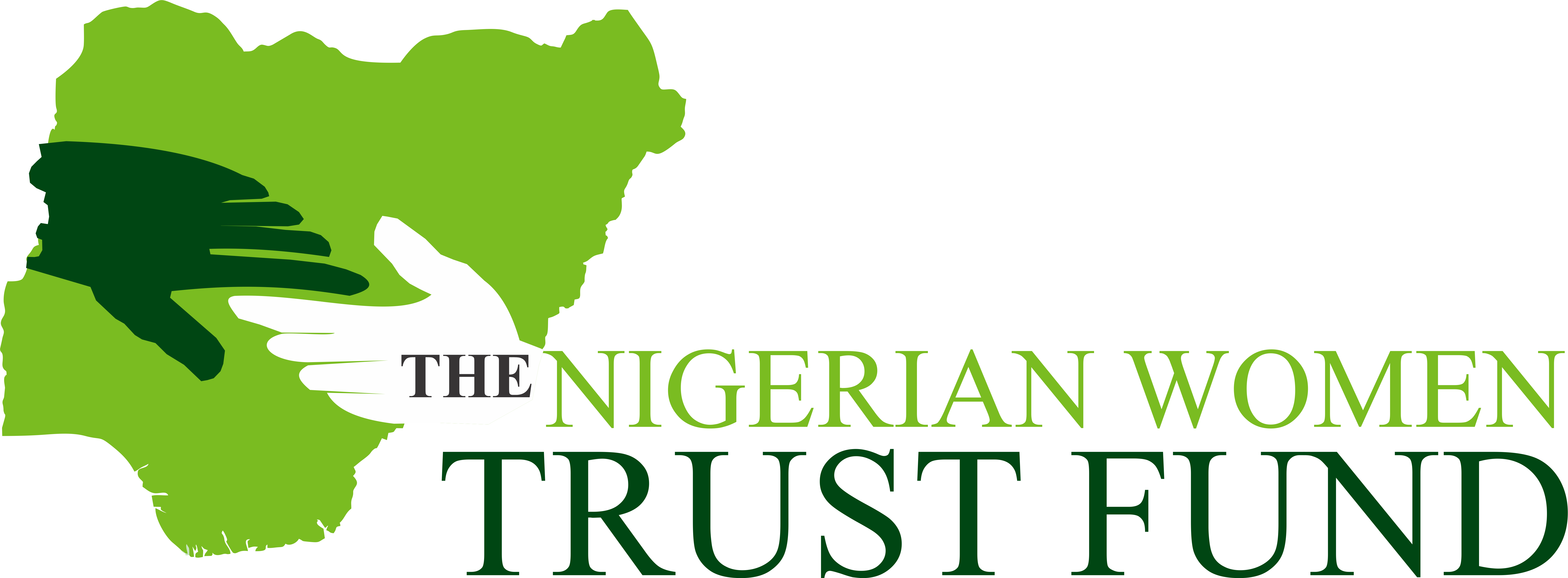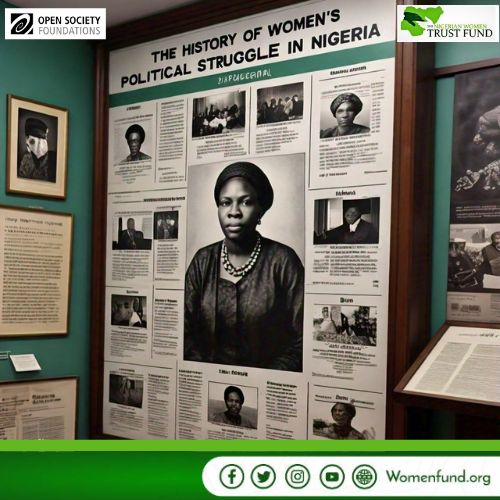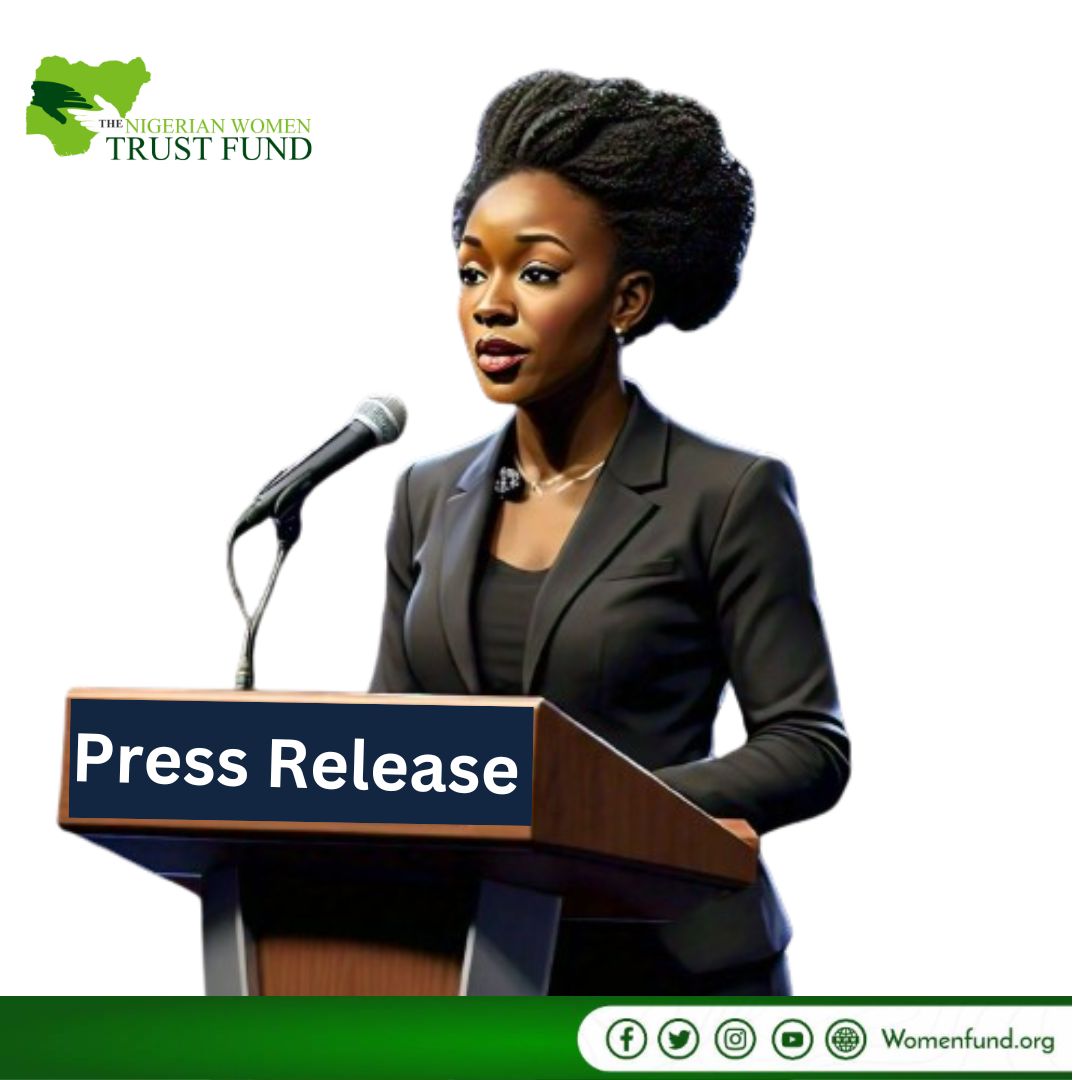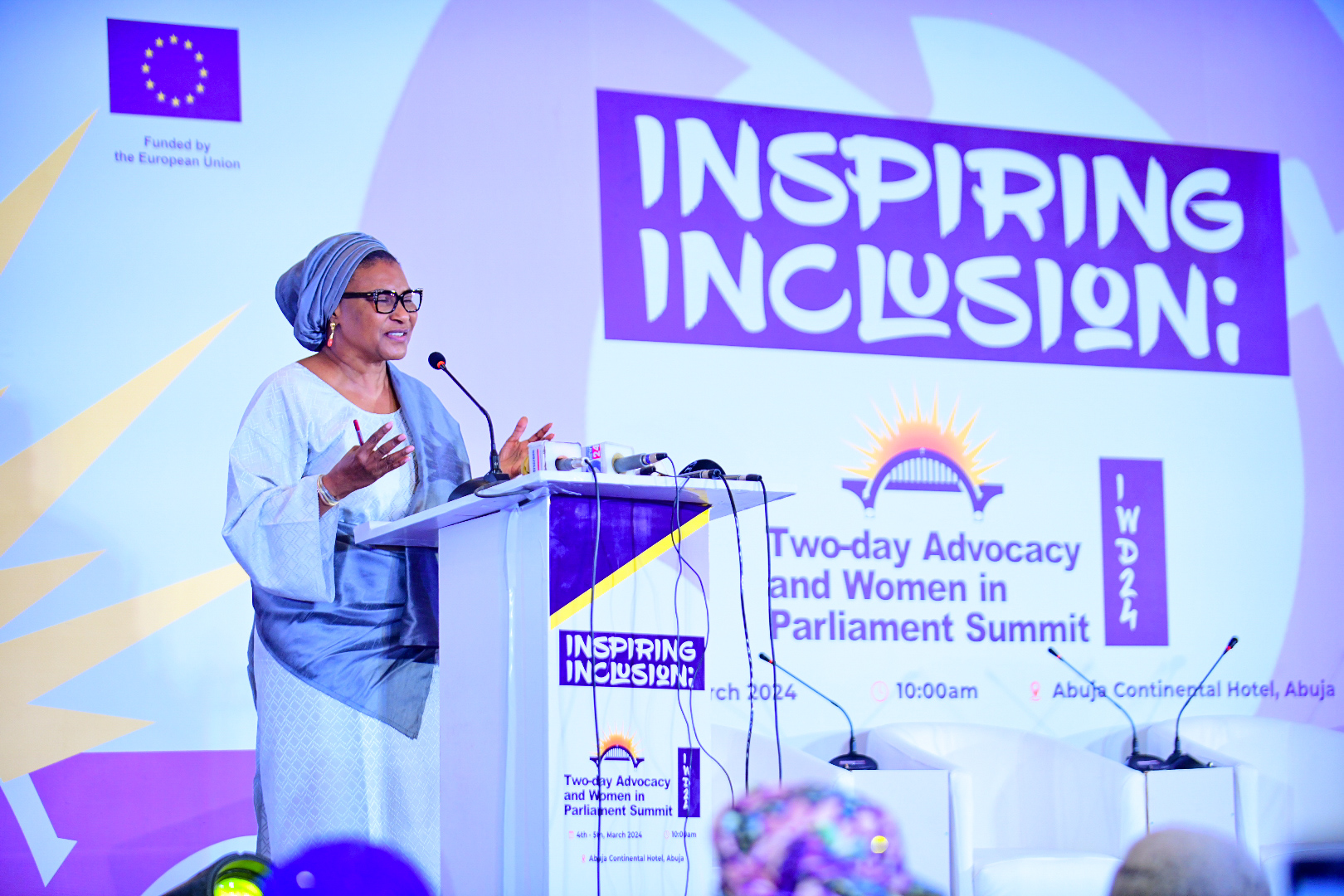Early Colonial Era (1900-1940s)
The history of women’s political struggle in Nigeria is rooted in the early colonial era when women began to mobilize against colonial policies and the social and economic changes they brought. One notable figure from this period is Funmilayo Ransome-Kuti, who led the Abeokuta Women’s Union (AWU) in protests unfair taxation and colonial rule in the 1940s. The AWU’s activism led to significant political changes, including the abdication of the Alake of Egbaland in 1949.
Post-Colonial Period and Independence (1950s-1960s)
As Nigeria moved toward independence in the 1950s, women continued to play crucial roles in political movements. Women’s organizations, such as the Nigerian Women’s Union and the Nigerian Women’s Party, advocated for greater female participation in politics. Despite these efforts, the immediate post-independence period saw limited political representation for women.
In 1960, when Nigeria gained independence, only a few women held political offices. Marginalization continued despite the contributions of women like Margaret Ekpo, a politician and women’s rights activist who was one of the first women elected to the Eastern Regional House of Assembly.
Military Rule and Continued Struggle (1966-1999)
The military coups and subsequent military rule from 1966 to 1999 posed significant challenges to women’s political advancement. During these years, political spaces were predominantly male-dominated, and women’s participation in politics was severely restricted.
However, women’s organizations continued their activism, advocating for democracy and human rights. The Women in Nigeria (WIN) organization, formed in 1982, played a pivotal role in raising awareness about women’s issues and pushing for gender equality in various sectors, including politics.
Return to Democracy and Increased Participation (1999-Present)
The return to civilian rule in 1999 marked a new era for women’s political participation in Nigeria. The new democratic framework provided more opportunities for women to engage in politics. The adoption of the National Gender Policy in 2006 aimed to promote gender equality and women’s empowerment in all sectors.
In recent years, there has been a noticeable increase in the number of women running for and holding political offices. Notable figures include Dr. Ngozi Okonjo-Iweala, who served as Nigeria’s Finance Minister and later became the Director-General of the World Trade Organization, and Amina Mohammed, the Deputy Secretary-General of the United Nations.
April 6th, 2022, Court Victory
A significant milestone in the struggle for women’s political rights occurred on April 6th, 2022, when the Federal High Court in Abuja ruled in favour of women’s inclusion in political processes. The Nigerian Women Trust Fund (NWTF), along with other co-plaintiff organizations such as Women Empowerment and Legal Aid (WELA), Women in Politics Forum (WIPF), Centre for Democracy and Development (CDD- West Africa), Women Advocate Research and Documentation Centre (WARDC), Vision Spring Initiatives (VSI), YIAGA Africa, International Federation of Women Lawyers (FIDA), and the 100 Women Lobby Group initiated the litigation process in 2020. Despite several adjournments, the case concluded favourably with the landmark judgment on April 6th, 2022. The court granted the five reliefs sought by the plaintiffs:
- Declaration that the failure of the Federal Government to implement the 35% affirmative action policy is illegal, unlawful, null, and an arbitrary violation of the National Gender Policy, 2006.
- Declaration that the failure to implement the 35% affirmative action policy violates Sections 42, 147 (3), and 14 (3) of the 1999 Constitution as amended, and Article 19 of the African Charter on Human and Peoples’ Rights.
- Declaration that the predominantly male appointments to decision-making positions are unlawful, unconstitutional, and violate the rights of the female gender to equal access to public office.
- Injunction restraining the Federal Government from making appointments in a manner violative of the 35% affirmative action policy.
- Order mandating compliance with the principle of equality of the sexes in all appointments, in accordance with the Constitution and the African Charter on Human and Peoples’ Rights.
Ongoing Challenges and the Need for Implementation
Since this landmark victory, the government has yet to implement the judgment. Women remain under-represented in both elective and appointive positions in Nigeria. This ongoing under-representation calls for concern and highlights the need for the government to comply with the court judgment to achieve an all-inclusive democracy.
Women’s organizations and activists continue to advocate for better representation and more inclusive policies. Initiatives like the Nigerian Women Trust Fund (NWTF) work to support female political candidates and promote gender equality in governance.
Conclusion
The history of women’s political struggle in Nigeria is a testament to the resilience and determination of Nigerian women. From the colonial era to the present day, women have fought tirelessly for their rights and for greater political participation. While significant progress has been made, the struggle continues, with ongoing efforts to overcome the barriers that remain and to ensure a more equitable and inclusive political landscape for future generations.





